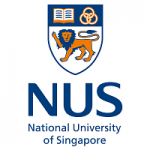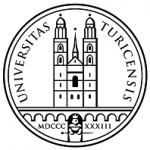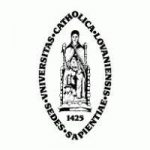项目介绍
The Duke-NUS Doctor of Medicine (MD) programme is built around a pioneering ‘Clinicians First, Clinicians Plus’ vision. It stems from our belief that graduates should be competent clinicians first, and beyond that, build on their other capabilities to become clinician scientists, innovators, educators and leaders to value-add to the Singapore healthcare system.
Duke-NUS welcomes students from diverse pathways and academic disciplines, who bring different expertise and perspectives to the medical profession. At Duke-NUS, we believe such diversity in our students is our strength. It promotes robust brainstorming, encourages critical thinking and helps develop key skills expected of future clinicians. Our graduates are curious, progressive and innovative. They are able to challenge paradigms to achieve the best possible care for our patients and contribute to the improvement of the healthcare sector.
This programme spans 4 years, and graduates are awarded a joint Doctor of Medicine (MD) degree by Duke University and the National University of Singapore (NUS). Applicants to this medical course must have at least a bachelor’s degree in any field.
Admission Requirements for MD
In alignment with our education mission, we review all applicants holistically. We admit individuals who not only have the potential to excel academically, but also possess personal attributes and competencies that align with our mission and values.
The Admissions Committee reviews all application material, reference letters, and interviewer comments carefully to better understand each applicant. We seek to identify those with the traits and skills that will help them succeed not only as clinicians but also clinicians-plus. These attributes include competent communication and interpersonal skills, integrity, teamwork, altruism, resilience, and critical thinking.
PRE-REQUISITES
- All applicants must have completed, or be in the final year of, a bachelor or honours degree. MBBS holders will not be considered for admissions.
- Graduate Medical School Admissions Test (GAMSAT) or Medical College Admission Test (MCAT) results.
- 3 – 5 recommendation letters, typically from professors, mentors and/or employers.
- Applicants are also required to meet the “Other Requirements” and “Technical Standards” below.
OTHER REQUIREMENTS
English Language Proficiency
Results of TOEFL or IELTS are required only if English was not the language of instruction during undergraduate studies. English is the language of instruction at Duke-NUS. Applicants whose medium of instruction during undergraduate studies was not English must submit either TOEFL (Test of English as Foreign Language) scores or the IELTS (International English Language Testing System) scores as evidence of their proficiency in the English language. The following are the minimum scores that should be achieved:
• 600 on the TOEFL paper-based test; OR
• 85 on the TOEFL internet-based test; OR
• an overall band score of 7 on the IELTS
Duke-NUS does not accept TOEFL or IELTS scores earned more than two years ago. Please visit our FAQs section for further queries on admissions requirements.
Health Requirements
Please be advised that in accordance with Singapore Ministry of Health regulations, MD and MD-PhD candidates matriculating into Duke-NUS Medical School must provide documentation for the following screening and immunization requirements:
• Screening for Hepatitis B and Immunity Status
• Screening for Hepatitis C Antibody and HIV Antibody
• MMR (Mumps, Measles and Rubella) Immunity Status
• Varicella (Chicken pox) Immunity Status
• Tdap (Tetanus, diphtheria, acellular pertussis) Immunity Status
Additional health requirements upon acceptance to Duke-NUS are currently under review, in keeping with local health mandates. Applicants who are offered admission will be apprised of health screening and immunization requirements.
Service Commitment
As the cost of medical education at Duke-NUS is subsidized by the Singapore Government, all graduates of its MD programme or the MD-PhD track are required to fulfill a service commitment. If this service commitment is broken or unfulfilled, liquidated damages – pro-rated according to the bond period not served – must be paid off to the government. The amount of liquidated damages is based on the government subsidy granted and compounded annual interest. For more information, please refer to the Singapore Ministry of Health (MOH) website.
According to MOH guidelines, the service commitment period is as follows:
4 years for Singapore citizens
5 years for international graduates and Singapore Permanent Residents
The service commitment period excludes the first year of postgraduate (residency) training, commencing only after satisfactory completion of the first postgraduate training year. The service commitment is fulfilled in a public sector hospital/institution in Singapore as determined by the Ministry of Health (MOH). Assuming satisfactory completion of the first postgraduate training year, trainees can fulfill their service commitment during residency training in Singapore; or alternatively, in an MOH-approved public sector research setting in lieu of further residency training. If there are additional questions please go to our FAQ page.
Completion of National/Military Service
Male Singapore Citizen and Singapore Permanent Resident applicants are expected to have fulfilled their National Service (NS) obligations before matriculation. For international applicants required to serve in their home country’s military, a few points should be kept in mind. While “Leave of Absence” (LOA) is in place for a number of academic, research, and personal reasons, this is contingent on approval by the Student Promotions Committee. Generally, LOA is not granted for fulfillment of National/Military Service obligations. Additionally, to be eligible for medical registration, the Singapore Medical Council requires a doctor to begin year-one of residency training within 1 year of graduating from medical school. This makes the immediate post-graduation period an unsuitable time for serving the typical 2-year military commitment. Given these specifications, it is strongly recommended that full-time National/Military Service is completed, or is in the process of being completed, before applying to Duke-NUS.
Completion of an Existing Bond
We require all applicants to Duke-NUS who have previously accepted scholarship offers with service commitment expectations, to directly confirm with their respective sponsoring organization(s) whether or not they are eligible to join Duke-NUS, and how this may additionally impact their future service commitment to the Singapore Ministry of Health.
Technical Standards
POLICY ON NON-ACADEMIC CONSIDERATIONS (TECHNICAL STANDARDS) IN THE MD ADMISSIONS PROCESS
Introduction
All candidates for the M.D. degree must possess the physical and mental skills and abilities necessary to successfully complete the medical school curriculum. To achieve the optimal educational experience, students are required to participate in all phases of the training programme.
The study of medicine is not a pure intellectual exercise. Rather, a specific set of minimum physical, mental, emotional and social abilities are needed to be a successful student. Students must possess all of the abilities listed in the five categories below. The use of an intermediary that would, in effect, require a student to rely on someone else’s power of observation and/or communication will not be permitted.
I. Observation:
a) Visually observe materials presented in the learning environment including audiovisual presentations, written documents, microbiology cultures, microscopic examination of microorganisms, tissues and gross organs in the normal and pathologic state, and diagnostic images.
b) Observe patients accurately and completely, both at a distance and directly. This requires functional vision, hearing, and sensation.
II. Communication:
a) Effectively speak, write, hear, read and use a keyboard.
b) Perceive non-verbal communications, including facial expression, body language, and affect.
c) Communicate effectively and sensitively with patients and their families via speech as well as reading/writing.
d) Communicate in oral and written form with the healthcare team in an effective, accurate and efficient manner.
III. Motor:
a) Elicit information from patients via palpation, auscultation, and percussion, as well as carry out diagnostic maneuvers.
b) Execute movements reasonably required to provide general medical care and emergency treatment to patients. These skills require coordination of gross and fine motor movements, equilibrium, and sensation.
c) Manipulate equipment and instruments to perform basic laboratory tests and procedures as required to attain curricular goals. (e.g. needles, stethoscope, ophthalmoscope, tongue blades, intravenous equipment, scalpel).
IV. Intellectual/conceptual, Integrative, and Quantitative Abilities:
a) Perform calculations necessary to solve quantitative problems as required by the curriculum.
b) Collect, organize, prioritize, analyze and assimilate large amounts of technically detailed and complex information in a timely fashion. This information will be presented in a variety of educational settings, including lectures, small group discussions, and individual clinical settings. The applicant should be able to analyze, integrate, and apply this information appropriately for the problem solving and decision-making.
c) Apply knowledge and reasoning to solve problems as outlined by the curriculum.
d) Comprehend the three dimensional spatial relationships of structures.
e) Remain awake and alert.
V. Behavioral, Emotional and Social Attributes
a) Possess the emotional health to fully apply his/her intellectual skill, exercise good judgment, and to complete all responsibilities attendant to the diagnosis and care of patients.
b) Develop a mature, sensitive and effective relationship with patients and colleagues.
c) Tolerate the physical, mental and emotional stress experienced during training and patient care.
d) Possess qualities of adaptability, flexibility, and the ability to function in the face of uncertainty.
e) Form a compassionate relationship with his/her patients while maintaining appropriate boundaries for a professional relationship.
f) Behave in an ethical and moral manner consistent with professional values and standards.
g) Exhibit sufficient interpersonal skills, knowledge and attitudes to interact positively and sensitively with people from all parts of society, ethnic backgrounds, and belief systems.
h) Cooperate with others and work corroboratively as a team member.
The faculty of the Duke-NUS Graduate Medical School recognizes its responsibility to present candidates for the M.D. degree who have the knowledge, attitudes and skills to function in a broad variety of clinical situations and to render a wide spectrum of patient care. Candidates for the M.D. degree at Duke-NUS Medical School will be prepared to enter postgraduate medical education as general physicians able to undertake specialty education.
The Committee on Admissions is responsible for adhering to these technical standards during the selection of medical students.
If you have any questions on whether you meet the standards described above, please contact the Admissions Office at admissions@duke-nus.edu.sg.
Adapted from Duke University School of Medicine’s Technical StandardsOpen in new tab.
相关项目推荐
KD博士实时收录全球顶尖院校的博士项目,总有一个项目等着你!






